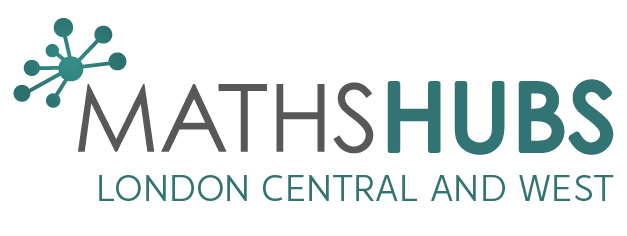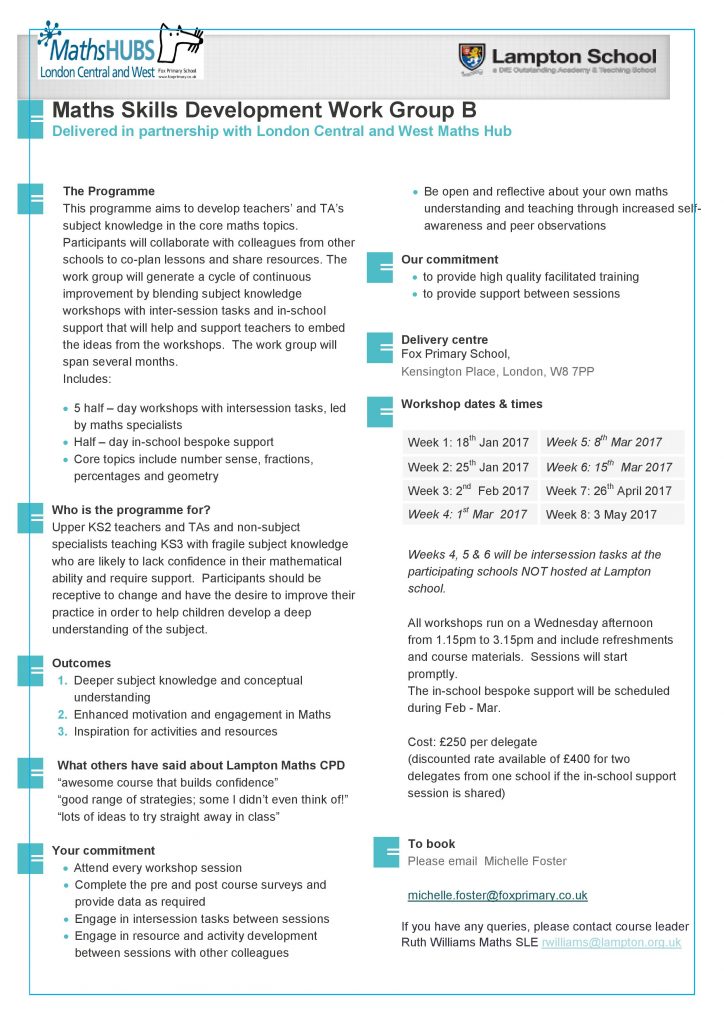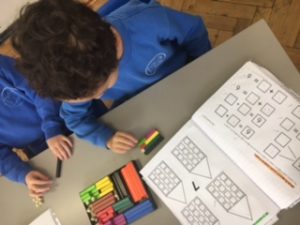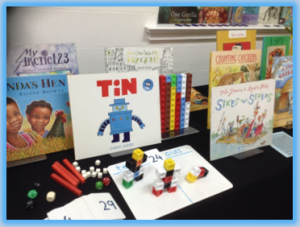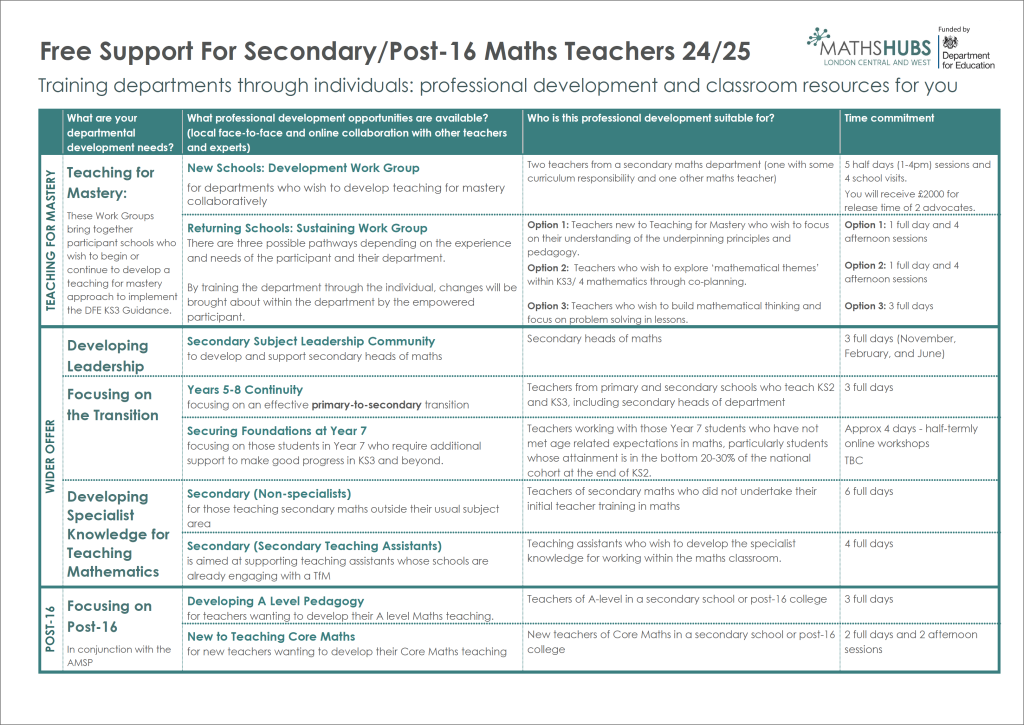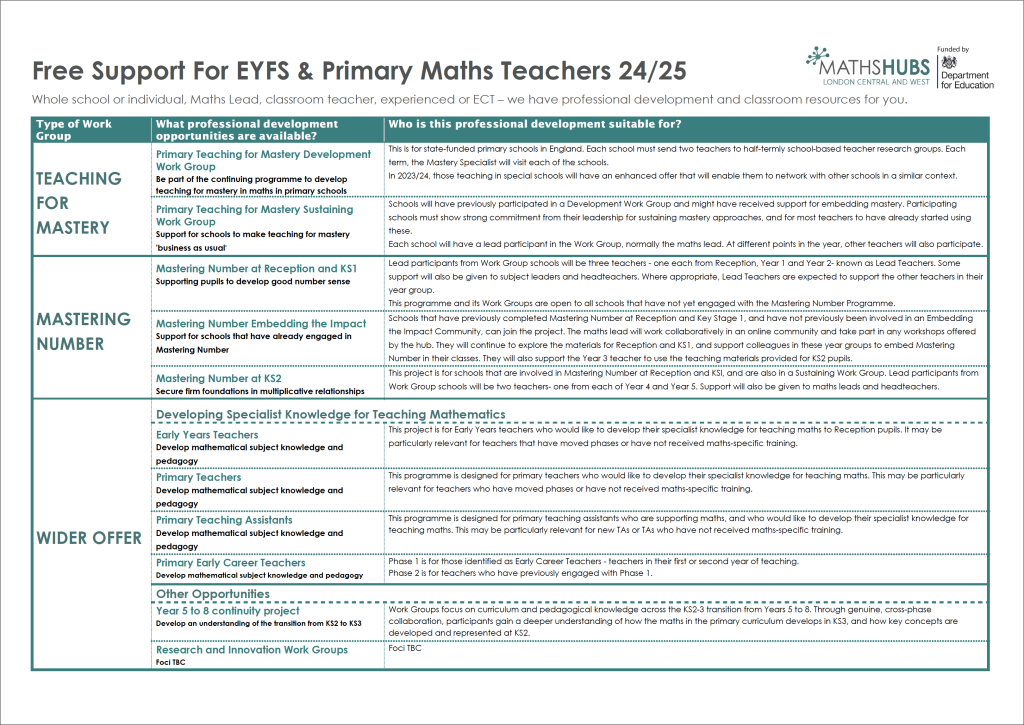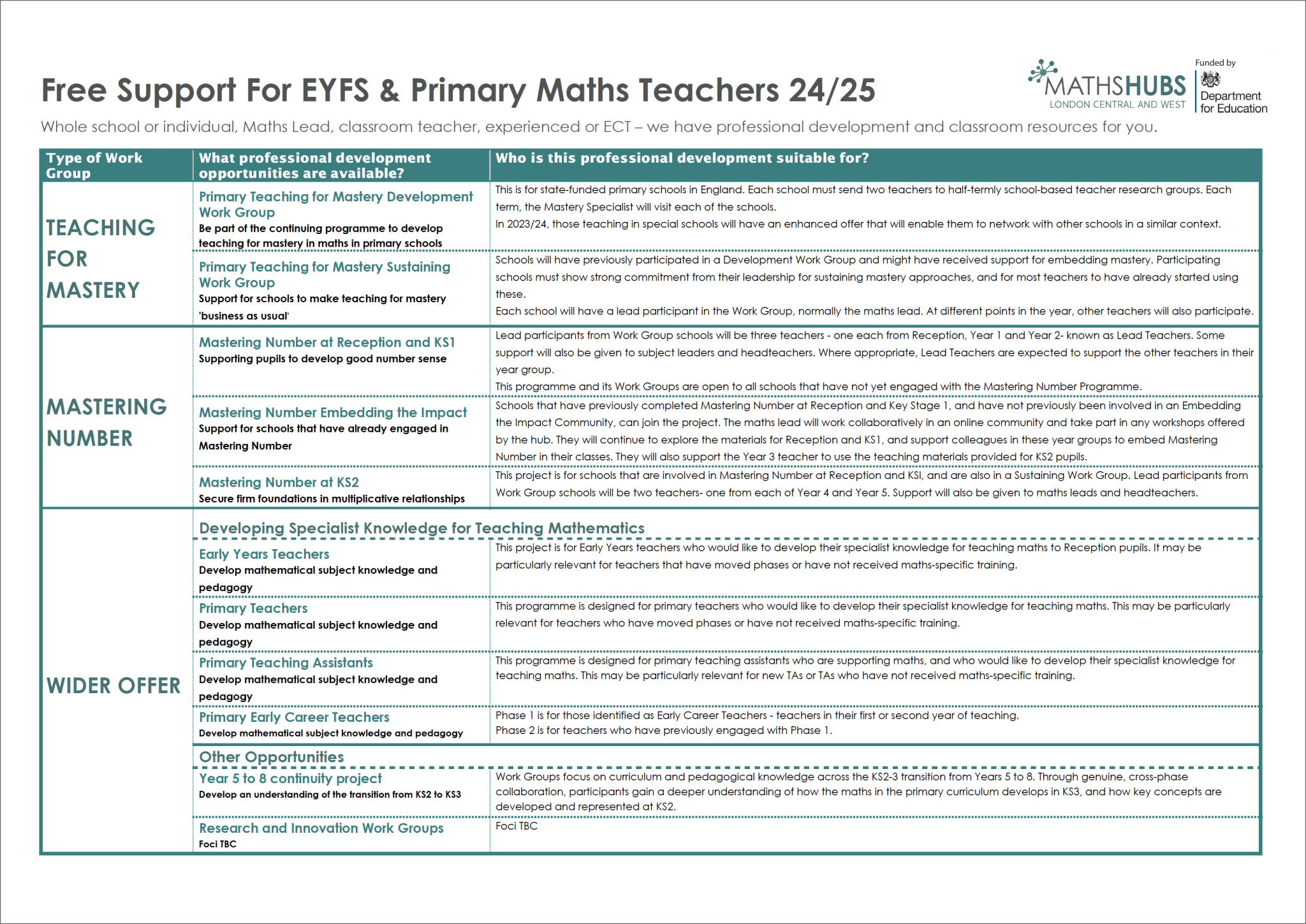Bar Model Action Research – Years 3 and 4
This was exciting opportunity to learn about the Bar Model and to work closely with teachers from other schools. The action research project looked at how the Bar Model could be used in Years 3 and 4 to promote conceptual understanding. This projected consists of three twilights and encouraged participants to observe each other between sessions following the TRG model (Teacher Research Group).
The project was led by Natasha Flood who is one of our Primary Mastery Specialists. In addition to this, Natasha recently completed her MA on Mathematics Education at Roehampton University where she gained a distinction overall. Her dissertation was called, ‘The Development of understanding of the array as a representation of multiplication’ and she also researched the differences between Eastern and Western teaching styles. During a recent trip to Singapore, she saw the use of bar models throughout all year groups as a fundamental visual representation to aid calculations.
Natasha is running another Bar Modelling course at Fox Primary School (see Fox CPD tab on this website)
Some quotes from evaluations taken on the course:
“I feel the teaching of word problems has always been a tricky area. Using bar models provides an excellent pictorial representation as it makes it clear what the children are trying to find and what operation is needed to find this missing part.”
“This pupil found the bar model extremely useful in finding a missing number in an equation. He was unable to u nderstand the inverse rule and how to use this to find a missing number in an equation. Using Cuisenaire and then a bar model he was able to identify the relationship between the different numbers.”
nderstand the inverse rule and how to use this to find a missing number in an equation. Using Cuisenaire and then a bar model he was able to identify the relationship between the different numbers.”
“I changed the way I taught word problems as well as thinking how I can use bar models in other areas of maths that I haven’t before e.g. fractions, scaling, etc.”
Improving Subject Knowledge and Pedagogical Approaches
What have you learned as a result of participating in the WG?
-A stronger conceptual understanding of core mathematical ideas
-Useful resources to use in lessons
-Deeper subject knowledge
-Lots of useful strategies – Brilliant teaching – exciting and interesting teaching ideas
-I learnt about the children’s ability to reason and how you can limit your lesson to just a couple of well-thought out questions and fully explore them . The children then show a much deeper understanding.
-I learnt more about mastery and what it looks like in terms of questioning.
-Opportunity to spend time in other schools allowed me appreciate different ways of doing things.
-Most useful: challenging my own thinking
Ruth Williams (SLE) who ran this project will also be running a new project called ‘SLE Improvement’ (Current Projects – Primary tab on our website)
Year 2 Post SATs Cuisenaire Project
The use of concrete manipulatives is essential in developing conceptual understanding in mathematics. One common, but at times underused, resource is Cuisenaire. This series of sessions supported Year 2 teachers and/or KS1 Maths Co-ordinators in using Cuisenaire to explore mathematical structures and relationships.
In addition to the face to face sessions which included demonstration sessions with a group of learners, we encouraged participants to work with other teachers in between the sessions. The sessions covered understanding structures and relationships using Cuisenaire rods and mathematical writing.
About the Facilitators
- Jenny Cane is KS1 leader at Bursted Wood. Articles on her work can be downloaded from http://tizard.stanford.edu/users/jennymcane
- Lorraine Hartley is Senior Lecturer, Roehampton University
- Dr Ian Benson is CEO (Acting) Sociality Mathematics CIC. He facilitates the Tizard network of schools re-evaluating and re-vitalising the Cuisenaire-Gattegno approach.
A quote from an evaluation taken on the course:
“It was eye-opening to see how algebra can be taught so simply using the rods. One thing I hadn’t considered before was how the literal work of comparing the rods and naming them by colour was a step that comes before attributing number values to them.”
The flipcharts and resources will be available soon (Free Resources Tab on our website)
Student Teacher and NQT Programme: Development of Subject Knowledge Focus on teaching for mastery teaching methods and resources.
The London Central and West Maths Hub and The University of Roehampton offered a 5-day subject knowledge development programme for those about to be NQTs and those who have just finished their NQT year, with an in depth focus on phase specific knowledge. This joint project focused on Teaching for Mastery teaching methods and resources.
The first two days focused on the principles of Mastery and Problem Solving across all the Primary Phases. Days 3-5, was year group specific, (Rec/Yr1, Yrs2/3, Yrs4/5/6) once participants knew which year group they would be teaching the subsequent September. These sessions focused specifically on place value, addition and subtraction, and multiplication and division. Intersession tasks and readings were also given. There were opportunities for planning and preparing for the start of term. The sessions involved development of subject knowledge and pedagogy through practical, collaborative tasks, with opportunities to observe and analyse lessons, as well as planning for the new year.
Some quotes from evaluations taken on the course:
“Looking at the books and talking to children has been very helpful as well as it being great to see examples of intelligent practice and observing ‘the maths’.
“Knowing how to build in those progressional steps for each year group and also building in the misconceptions and the depth.”
“Repeating sentence structures and the realisation of the importance of language.”
“It was great to know the non-negotiables of my phase and CPA approach.”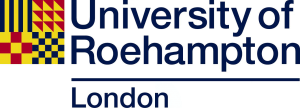
“Knowing how to structure lessons so everyone is working at the same pace.”
“I will ensure that children are given time for a talk task and making sure the concepts are varied.”
“Same day interventions, incremental steps, ways of providing challenge, modelling.”
“Practical ways of applying mastery techniques.”
“Practical advice and tips for first week back and transition.”
“I saw how to take the learning slowly, to approach gradually and repeat key learning.”
“Feeling more confident to question the children’s learning and reasoning.”
“I learnt how to build on topics in a progressive way.”
We will be running a similar project this academic year (Current Projects-Primary tab on our website)
Developing expertise in the teaching of Maths to pupils with SEND
The first day of this project looked specifically at Maths and Autism delivered by Andy Nowak, who is the deputy head at Queensmill School, and some members of his team. This school specialises in teaching children with Autism and delivers outreach work to the surrounding boroughs. Topics covered were:
-Autism in mainstream schooling
-Teaching pre-numeracy skills from a social and sensory perspective
-Differentiating the national curriculum for Autism
-Positive appreciation planning (e.g. looking at planning activities and how they can be adapted to relate to your setting)
The second day of this project looked at Mathematics in relation to dyslexia and dyscalculia delivered by Steve Chinn. Steve’s experience spans over forty years of work and research in special and mainstream education. In 1986 he founded and then built a specialist secondary school for dyslexic boys, a school which won major national awards. He is now an independent consultant, researcher and writer and has presented papers, contributed to conferences and delivered training courses for psychologists, teachers, parents and support assistants in over thirty countries across the world. Steve also looked at giving a general introduction, teaching/learning as well as assessment.
Some quotes from evaluations taken on the course:
‘It was hugely beneficial to learn practises from special needs settings to implement in whole class teaching’
‘It has given me a deeper understanding of dyscalculia and strategies that could be used to support those children with SEND.’
‘I have much more confidence in spotting signs of dyscalculia and how to support children effectively using resources’
‘Thinking about test anxiety and how best to support pupils through this.’
‘I found there was a huge importance in finding patterns of numbers as well as the importance of consolidation place value’
‘The workshop provided valuable ideas on ways to support children. The insight into the ways of testing children who are struggling was very helpful and the methods used to teach children was very helpful too.’
Effective use of Picture Books in EYFS and KS1
This was a really successful project because picture books are incredibly useful as a resource to stimulate interest and expose mathematical concepts and ideas. So many ideas and enthusiasm came from a range of books and sometimes just a page from a book.
Teachers from both the EYFS and KS1 researched how picture books could be used best in these classes and on the 15th June, they presented their findings along with resources and activities that they had created in a twilight session to other schools and teachers that had not been involved with the project from the start.
We will be running a similar project this academic year for KS2 (Current Projects-Primary tab on our website)
